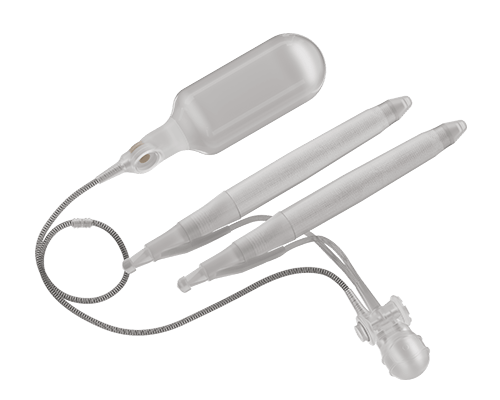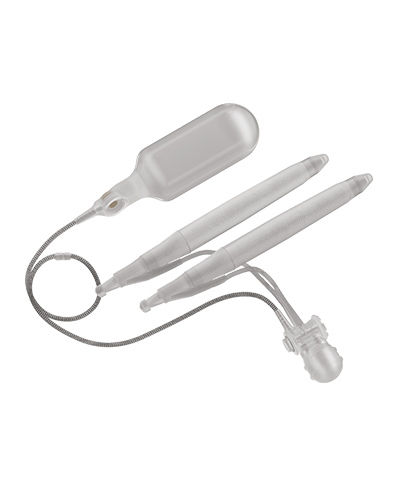
Penile Prosthesis Solutions for Prostate Surgery and Diabetes-Related Erectile Dysfunction

Understanding Erectile Dysfunction from Prostate Surgery and Diabetes
Erectile dysfunction commonly arises following radical prostatectomy and is also prevalent among individuals with diabetes mellitus.
Radical Prostatectomy Impact
These conditions cause ED through nerve damage, compromised blood flow, and anatomical changes. Between 60-75% of men undergoing radical prostatectomy experience significant erectile dysfunction, with rates varying based on surgical technique, patient age, and preoperative erectile function13,12.
Diabetes-Related ED
For individuals with diabetes, the prevalence of ED ranges from 50-75%, with higher rates correlating with longer disease duration, poor glycemic control, and presence of other diabetic complications8,6.
Advanced Treatment Options
Penile implants represent a reliable and permanent solution for patients whose ED is unresponsive to traditional therapies such as oral medications, injections, or vacuum erection devices7.
Advantages of Penile Prostheses in Managing ED
Penile prostheses provide several significant benefits for patients with ED unresponsive to traditional therapies.
Key Benefits for Patients:
- Immediate and consistent erection capability: Allowing for sexual activity without the planning required with other treatment modalities
- Enhanced sexual spontaneity and confidence: Addressing the psychological aspects of sexual dysfunction that often accompany organic ED
- High satisfaction rates: Multiple clinical studies demonstrate significant improvement in patient and partner satisfaction rates, with contemporary research showing satisfaction rates exceeding 80-90% in properly selected patients1,3
"Contemporary studies report long-term satisfaction rates between 80-95%, with partner satisfaction rates similarly high."
"Device survival rates exceed 80% at 10 years for current-generation implants, making them a durable solution for permanent ED."
Rigicon's Advanced Penile Prosthesis Solutions
Introducing Infla10® Pulse™ Series

Dynamic Inflatable Technology
The Infla10 Pulse series represents Rigicon's dynamic inflatable penile prosthesis (DIPP) technology with a three-piece inflatable system.
Enhanced Expansion
Features enhanced girth expansion capabilities and improved deflation mechanics, making it particularly suitable for patients with compromised vascular and neural conditions following prostatectomy or in long-standing diabetes.
Proven Satisfaction
Recent clinical studies have demonstrated high satisfaction rates with the Infla10 system, with over 90% of patients reporting satisfactory outcomes11.
Malleable Alternative
The Rigi10 malleable penile prosthesis provides excellent rigidity with a natural feel and optimal comfort for patients with anatomical or dexterity challenges.

Frequently Asked Questions
Common questions about penile implant options for prostate surgery and diabetes patients.
How soon after prostate surgery can I receive a penile implant?
Current clinical guidelines recommend waiting 6–12 months post-surgery before penile implant placement. This timeframe allows for maximum natural recovery of erectile function and ensures adequate healing of surgical tissues. The specific timing should be based on the surgeon's assessment of individual healing progression and the patient's priorities regarding sexual function recovery9,2.
Is a penile implant effective for diabetes-related ED?
Yes, penile implants offer highly effective solutions for men with diabetes-related erectile dysfunction. These devices can successfully overcome the vascular and neurological limitations commonly seen in diabetic patients that often make other ED treatments less effective. However, proper perioperative glycemic control is essential to minimize infection risk, which is slightly elevated in diabetic patients5,14.
What outcomes can I expect from a penile prosthesis?
Patients receiving modern penile prostheses experience significant improvements in erectile function, sexual satisfaction, and overall quality of life. Contemporary studies report long-term satisfaction rates between 80-95%, with partner satisfaction rates similarly high. Device survival rates exceed 80% at 10 years for current-generation implants, making them a durable solution for permanent ED10,4.
References
- Bernal RM, Henry GD. Contemporary patient satisfaction rates for three-piece inflatable penile prostheses. Adv Urol. 2012;2012:707321. DOI: 10.1155/2012/707321
- Capogrosso P, Ventimiglia E, Cazzaniga W, et al. Long-term penile morphometric alterations in patients treated with radical prostatectomy. Andrology. 2018;6(2):313-319. DOI: 10.1111/andr.12456
- Carvalheira A, Santana R, Pereira NM. Why are men satisfied or dissatisfied with penile implants? A mixed method study on satisfaction with penile prosthesis implantation. J Sex Med. 2015;12(12):2474-2480. DOI: 10.1111/jsm.13054
- Chung E, Solomon M, DeYoung L, Brock GB. Clinical outcomes and patient satisfaction rates among elderly male aged ≥75 years with inflatable penile prosthesis implant for medically refractory erectile dysfunction. World J Urol. 2019;37(7):1335-1340. DOI: 10.1007/s00345-018-2497-y
- Khera M, Albersen M, Mulhall JP. Mesenchymal stem cell therapy for the treatment of erectile dysfunction. J Sex Med. 2020;17(4):595-604. DOI: 10.1016/j.jsxm.2019.12.020
- Kouidrat Y, Pizzol D, Cosco T, et al. High prevalence of erectile dysfunction in diabetes: a systematic review and meta-analysis of 145 studies. Diabet Med. 2017;34(9):1185-1192. DOI: 10.1111/dme.13403
- Levine LA, Becher EF, Bella AJ, et al. Penile prosthesis surgery: current recommendations from the International Consultation on Sexual Medicine. J Sex Med. 2016;13(4):489-518. DOI: 10.1016/j.jsxm.2016.01.017
- Malavige LS, Levy JC. Erectile dysfunction in diabetes mellitus. J Sex Med. 2009;6(5):1232-1247. DOI: 10.1111/j.1743-6109.2008.01168.x
- Mulhall JP, Carlsson M, Stecher V, Tseng LJ. Predictors of erectile function normalization in men with erectile dysfunction treated with placebo. J Sex Med. 2019;15(6):866-872. DOI: 10.1016/j.jsxm.2018.03.011
- Rajpurkar A, Dhabuwala CB. Comparison of satisfaction rates and erectile function in patients treated with sildenafil, intracavernous prostaglandin E1 and penile implant surgery for erectile dysfunction in urology practice. J Urol. 2020;170(1):159-163. DOI: 10.1097/01.ju.0000072524.82345.6d
- Rigicon Clinical Evidence. Patient satisfaction study for the new Rigicon Infla10 inflatable penile prosthesis including single-surgeon safety and outcomes data. 2025.
- Saleh A, Abboudi H, Ghazal-Aswad M, et al. Management of erectile dysfunction post-radical prostatectomy. Res Rep Urol. 2015;7:19-33. DOI: 10.2147/RRU.S58974
- Tal R, Alphs HH, Krebs P, Nelson CJ, Mulhall JP. Erectile function recovery rate after radical prostatectomy: a meta-analysis. J Sex Med. 2017;6(9):2538-2546. DOI: 10.1111/j.1743-6109.2009.01351.x
- Wilson SK, Mora-Estaves C, Egydio P, et al. Glans necrosis following penile prosthesis implantation: prevention and treatment suggestions. Urology. 2021;139:67-73. DOI: 10.1016/j.urology.2021.03.021
Ask Your Surgeon About Rigicon
Schedule a consultation to discuss whether Rigicon's innovative implant options are right for you after prostate cancer treatment or for diabetes-related ED.
Find ResourcesDiscover More

Clinical Evidence
Peer-reviewed publications and clinical evidence supporting Rigicon's prosthetic urology solutions

Prosthetic Urology FAQs
Evidence-based FAQs on artificial urinary sphincters, penile and testicular prostheses—grounded in peer-reviewed research and the latest international guidelines.

Rigicon Blog
Explore expert insights on penile implants, erectile dysfunction, artificial urinary sphincters, and men's sexual health.